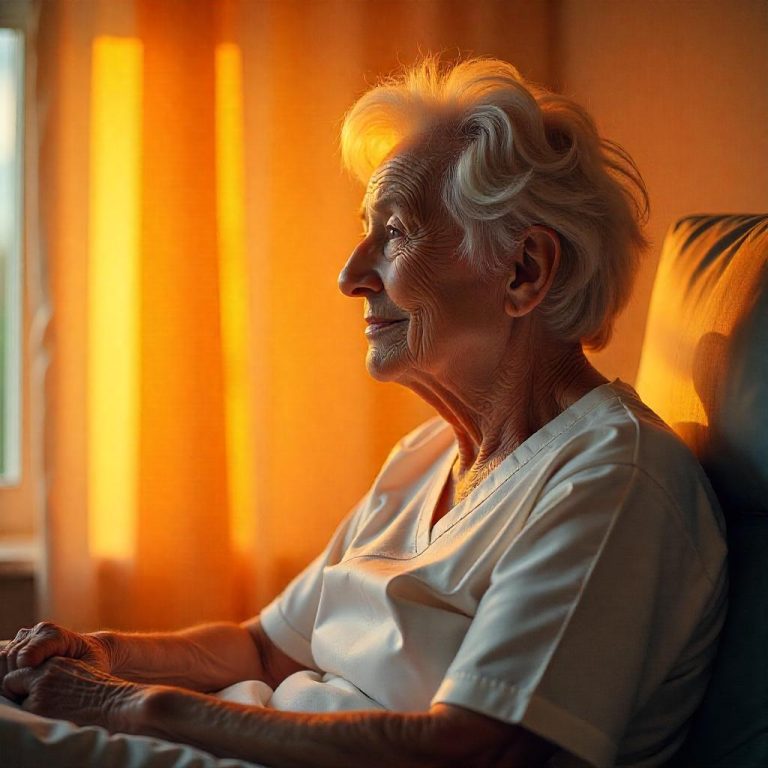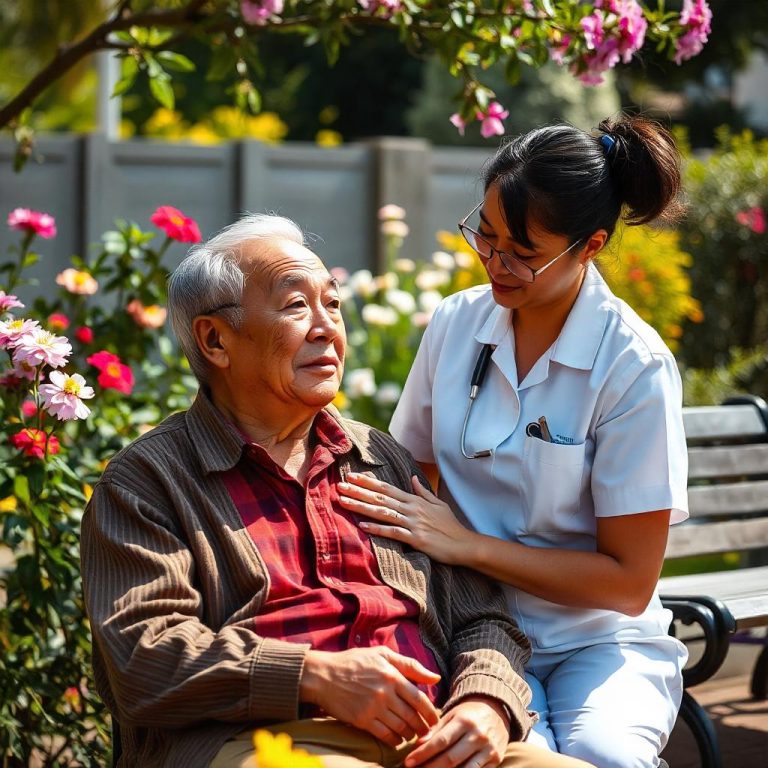Non-medical senior care plans are designed to assist older adults with activities of daily living (ADLs) and provide companionship, without involving medical or clinical interventions. These plans focus on improving seniors’ overall quality of life, promoting independence, and ensuring that they are safe and comfortable at home. Non-medical care plays a significant role in helping seniors maintain their dignity and freedom while receiving support tailored to their unique needs.
What Are Non-Medical Senior Care Plans?
Non-medical senior care refers to a range of services provided to elderly individuals who need help with daily living tasks but do not require medical attention or skilled nursing care. These services are typically delivered by trained caregivers and can be offered in the comfort of the senior’s own home. Non-medical care covers a wide variety of support options that focus on personal care, household tasks, transportation, and social engagement, all designed to maintain a senior’s independence and well-being.
Key Components of Non-Medical Senior Care Plans
- Personal Care Assistance
- Description: Personal care services are a significant part of non-medical senior care. These services help seniors with basic tasks such as bathing, dressing, grooming, toileting, and mobility assistance.
- Benefits: These services allow seniors to maintain hygiene and appearance, promoting a sense of dignity and self-esteem. Caregivers assist in a compassionate and respectful manner, ensuring seniors feel comfortable while receiving the help they need.
- Companionship Services
- Description: Companionship care provides social interaction and emotional support for seniors. Caregivers engage in conversations, participate in activities, and provide the emotional companionship needed to reduce feelings of loneliness and isolation.
- Benefits: Social interaction and companionship are essential for mental and emotional well-being. These services help seniors stay mentally stimulated, reduce depression, and enjoy a sense of connection, especially for those living alone.
- Light Housekeeping
- Description: Light housekeeping includes assistance with maintaining a clean and tidy living environment. Caregivers may help with tasks like vacuuming, dusting, doing laundry, making beds, and organizing personal belongings.
- Benefits: A clean and organized home promotes comfort, safety, and independence. Light housekeeping services reduce the physical strain on seniors, allowing them to live in a well-kept environment without feeling overwhelmed by household chores.
- Meal Preparation
- Description: Meal preparation services ensure that seniors receive nutritious and well-balanced meals. Caregivers may assist with meal planning, grocery shopping, and cooking meals according to the senior’s dietary preferences or restrictions.
- Benefits: Good nutrition is critical for seniors’ health and energy levels. By providing healthy and appropriate meals, non-medical senior care plans help prevent malnutrition and promote better overall health.
- Medication Reminders
- Description: While non-medical caregivers do not administer medications, they can remind seniors to take their medications on time and ensure they follow their prescribed schedules. This may involve helping organize medications into daily planners.
- Benefits: Medication adherence is crucial for managing chronic conditions and maintaining health. Caregivers help ensure that seniors do not miss doses, which can prevent health complications and hospitalizations.
- Transportation and Errands
- Description: Non-medical caregivers can assist seniors with transportation to appointments, social events, or errands like grocery shopping and banking. This is especially beneficial for those who no longer drive.
- Benefits: Transportation services allow seniors to maintain an active lifestyle and participate in community activities, which are essential for social engagement and mental stimulation. It also ensures they can access essential services and appointments.
- Fall Prevention and Safety Supervision
- Description: Safety supervision is a key element of non-medical care, focusing on preventing falls and ensuring a safe living environment. Caregivers may assist with mobility and monitor seniors to avoid hazardous situations.
- Benefits: Fall prevention is critical to senior safety, as falls are one of the leading causes of injury among older adults. With proper supervision, seniors can reduce the risk of accidents in the home and feel more secure.
- Respite for Family Caregivers
- Description: Non-medical senior care plans often include respite care, giving family caregivers a break from their caregiving duties. Caregivers provide the necessary support for the senior while the family caregiver takes time off for personal rest or to attend to other responsibilities.
- Benefits: Caregiving can be physically and emotionally taxing. Respite care helps prevent caregiver burnout, ensuring that family members can continue to provide care for their loved ones in the long term.
- Social Engagement and Activities
- Description: Non-medical caregivers often engage seniors in activities that stimulate their cognitive and emotional well-being, such as playing games, doing puzzles, crafts, or engaging in hobbies the senior enjoys.
- Benefits: Engaging in meaningful activities can help maintain cognitive function, reduce feelings of boredom, and promote emotional well-being. It can also provide opportunities for socialization, which is essential for mental health.
- Post-Surgery or Injury Recovery Support
- Description: Seniors recovering from surgery or injury may need extra assistance with daily activities. Non-medical caregivers can help with light tasks, mobility, and ensure the senior is adhering to their recovery plan.
- Benefits: Providing support during recovery ensures that seniors can focus on healing without the added stress of managing household tasks or basic care. It promotes a faster recovery and reduces the risk of setbacks.
Benefits of Non-Medical Senior Care Plans
- Improved Quality of Life
- Non-medical senior care plans enhance the quality of life for seniors by ensuring they receive the assistance needed to remain independent and engaged in daily life. Whether through companionship, help with daily tasks, or providing a safe environment, these services improve overall well-being.
- Independence and Dignity
- These services allow seniors to maintain their independence while receiving necessary support. By helping with daily activities in a respectful and dignified manner, non-medical care fosters a sense of autonomy and self-respect.
- Reduced Caregiver Stress
- Family caregivers often experience physical and emotional strain when providing care for their elderly loved ones. Non-medical senior care alleviates some of that burden, offering respite and ensuring that caregivers have time to rest and recharge.
- Cost-Effective Alternative to Institutional Care
- Non-medical senior care is often more affordable than nursing home care or other institutional options. It offers personalized support in the comfort of the senior’s own home, which can be both a cost-effective and emotionally beneficial alternative to more intensive care settings.
- Better Health and Well-Being
- By providing consistent help with daily tasks, non-medical senior care plans promote better health outcomes. Whether it’s ensuring medication adherence, helping with mobility, or preparing nutritious meals, these services contribute to seniors’ overall physical and emotional health.
- Safety and Fall Prevention
- The risk of falls and accidents increases as people age. Non-medical caregivers provide supervision and ensure the home environment is safe, reducing the risk of injury and enhancing the senior’s safety.
- Encouragement of Social Interaction
- Companionship services and social activities play an important role in reducing loneliness and isolation, which are common issues among older adults. Social interaction helps improve mental health and emotional well-being.
How to Create a Non-Medical Senior Care Plan
- Assess Needs
- The first step in creating a non-medical senior care plan is to assess the senior’s physical, emotional, and social needs. This may involve discussions with healthcare providers, family members, and the senior themselves to identify areas where assistance is required.
- Set Goals
- Determine the goals of the care plan. Whether it’s ensuring safety, providing companionship, or helping with mobility, setting clear objectives helps guide the care process and ensures that the senior’s specific needs are addressed.
- Choose the Right Services
- Based on the assessment and goals, choose the appropriate services for the senior. This may include personal care assistance, light housekeeping, transportation, or any other support needed.
- Monitor and Adjust
- It is essential to regularly review and adjust the care plan as the senior’s needs evolve. Changes in health, mobility, or living conditions may require modifications to the plan to ensure ongoing support.
- Work with Caregivers
- Selecting the right caregiver is key to the success of a non-medical senior care plan. Choose caregivers who are trained, compassionate, and capable of meeting the senior’s needs. Communication between caregivers, family members, and healthcare professionals is crucial to ensuring the plan’s success.






